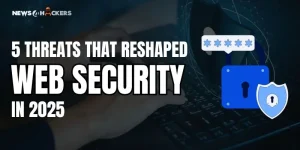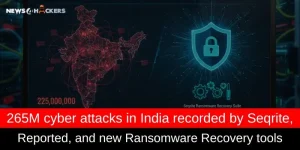Gujarati man ends up losing ₹12 lakhs in online fraud after liking and following Instagram accounts.

In an internet scam where he was offered a position as a social media influencer, a man from Gujarat lost a total of ₹12 lakhs.
Vadodara, Gujarat: In India, there are more occurrences of online fraud. New instances of online con artists stealing money from unwitting people are recorded every day. In a recent incident, a man from Gujarat who had been offered a career as a social media influencer was defrauded out of ₹12 lakhs of money.
Prakash Sawant, the victim, is 36 years old and lives in Subhanpura, Vadodara. He just reported online fraud to the cybercrime police station. Sawant allegedly got a WhatsApp message from Divya in March, per the FIR obtained by Times of India. She suggested that he work part-time employment on social media, where his duties would be to follow and like the profiles of male and female celebrities on Instagram. She further informed Sawant that he might make between ₹1,000 and ₹15,000 per day and earn ₹200 for every two likes.
By emailing Prakash Sawant Instagram links and asking him to follow the account, the woman proved her claims. She even supplied proof in the form of a screenshot. She also invited Sawant to participate in group conversations and added him to several groups.
After accepting the job, Sawant even had ₹200 deposited into his bank account, which increased his confidence in the legitimacy of the position. Additionally, he made a connection with Lucy, who joined him in a group to whom 25 chores were given out each day. Sawant completed these duties by liking YouTube links, and as a result, his wife’s bank account was credited with ₹500.
After a couple of days, the con artist encouraged Sawant to accomplish additional prepaid activities that required money deposits with the promise of a higher commission. Sawant paid ₹1,000 to begin this assignment and received ₹1,300 back. He then made an investment of ₹10,000 and received ₹12,350 in return. Sawant invested more money after receiving this commission since it made him more confident in the plan.
In the end, Sawant paid a total of ₹11.27 lakhs and accomplished the tasks given to him. The con artists continued to stress that they needed to deposit ₹11.80 lakhs in order to make ₹45 lakhs. Sawant, however, told the con artists that he didn’t have that much cash and declined to transfer it. The thieves responded by refusing to give him his formerly deposited funds of ₹11.27 lakhs back. When Sawant realized he had been duped, he went to the cybercrime investigator to demand restitution.
How to stay safe from online scam?
This particular fraud involving part-time work like videos or profiles, however, is not new. In the past, numerous instances when con artists used comparable strategies have been exposed. The cybercrime department warns individuals to avoid clicking on any online offers that seem too good to be true in order to be protected. Before disclosing any financial or personal data, it’s crucial to do some study to confirm the credibility of the opportunity.
Here are some crucial pointers to bear in mind if you want to protect yourself against these scams.
- Never believe in unwanted contact. Be wary if a call, text, or email comes in from someone you don’t know. These techniques are frequently used by scammers to approach people and con them into parting with money or personal information.
- Do your analysis and research. If you’re considering an internet offer, do some research on the business or organization that’s making it. Check out the testimonials of other clients who utilized their services. It’s advised to steer clear of a firm if you can’t uncover any information on it.
- Be cautious when making payments or deposits in exchange for future return promises. It’s usually a fraud if someone assures you that you can make a lot of money with little to no effort. There are no free meals in life.
- Above all else, never divulge monetary or personal information to a stranger. Your Aadhaar card number, bank account number, credit card information, and passwords are all included in this. These details are frequently requested by scammers in order to obtain your personal information or money.
About The Author:
Yogesh Naager is a content marketer that specializes in the cybersecurity and B2B space. Besides writing for the News4Hackers blog, he’s also written for brands including CollegeDunia, Utsav Fashion, and NASSCOM. Naager entered the field of content in an unusual way. He began his career as an insurance sales executive, where he developed an interest in simplifying difficult concepts. He also combines this interest with a love of narrative, which makes him a good writer in the cybersecurity field. In the bottom line, he frequently writes for Craw Security.
Read More Article Here:
Mumbai Man Defrauded of ₹50,000 in An Online Gift Card Scam
‘Drugs in parcel’ cyber scam costs a Pune student and her mother ₹53 lakh.







